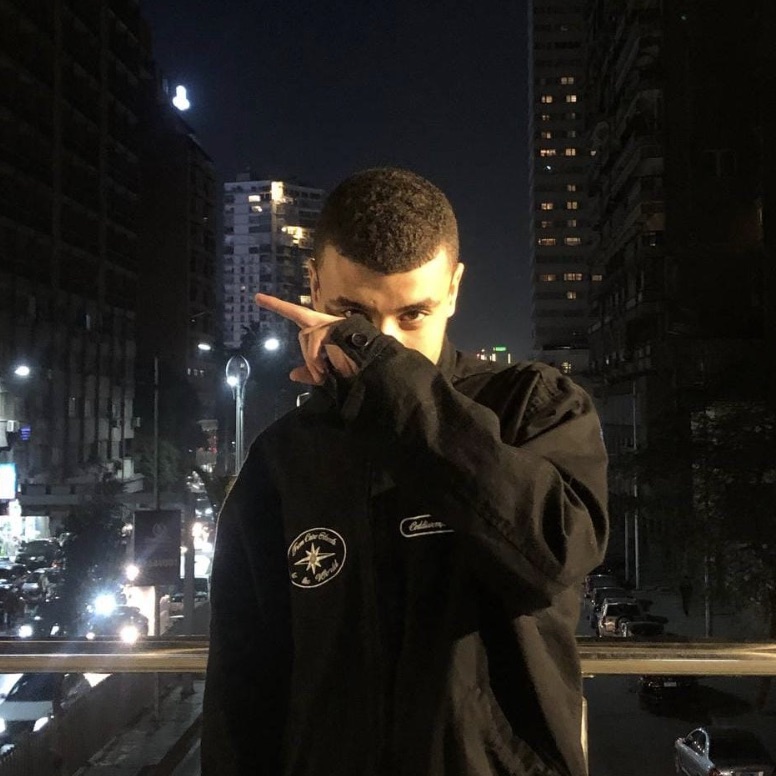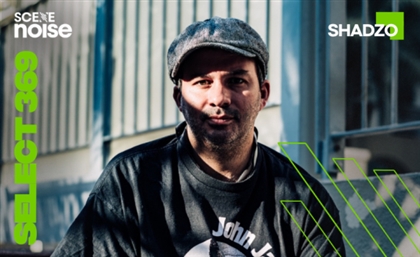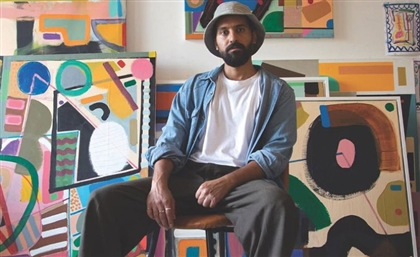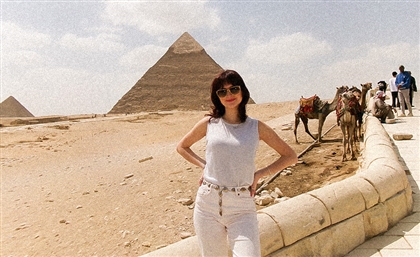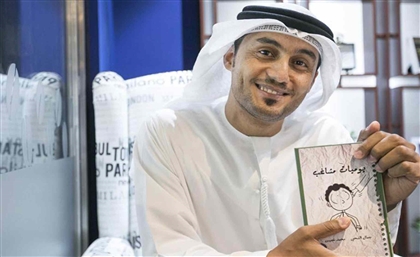In Context: The Unsung Legacy of Libyan Synth-pop Legend Ahmed Fakroun
Breaking down the history of the Libyan pioneer Ahmed Fakroun, between political turmoil and musical impact.
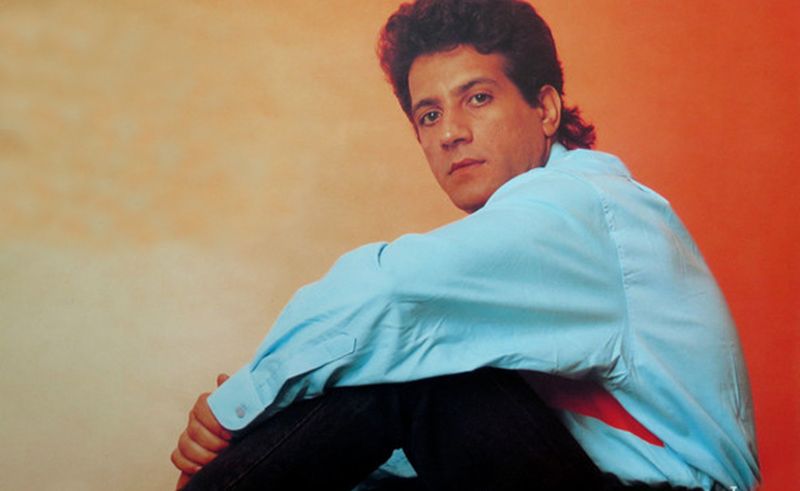
Ahmed Fakroun, hailing from Benghazi, Libya, and rising to prominence in the 1970s, wasn't just a performer; he was a musical bridge-builder. Unlike many contemporaries focused on regional appeal, Fakroun craved a sound that transcended borders. He readily incorporated diverse influences, from Algerian Rai to European pop and rock, even weaving in elements of film scores.
This fascination with a wide range of music translated into impressive instrumental skills. Fakroun wasn't just a vocalist; he mastered traditional instruments like the oud and darbuka alongside more modern ones like guitar, bass, and keyboards. This versatility became a key ingredient in his unique sound. Fakroun's ambition was evident early on. By 1970, he had formed his first band. Just five years later, his recordings with producer Tommy Vance caught the attention of BBC and Capital Radio. Returning to Libya, he achieved instant fame with hit singles like ‘Awedny’ and ‘Njoom Al Leyel’. Fakroun's true artistic statement arrived in 1983 with the release of ‘Words of Love’ which included hit tracks such as ‘Soleil Soleil’ on the French label Celluloid. This album coincided with the peak of the new wave movement, and Fakroun carved out his own niche: Arabic electro-pop. The sound resonated strongly in neighboring Algeria but had a more limited impact in Libya.
Fakroun deliberately chose a distinct path. While artists like Hamid El Shaeri adapted their styles for broader audiences, Fakroun pursued a more sophisticated and experimental sound. His lyrical themes were equally unique, delving beyond typical love songs to explore themes of the night, Libyan hero Omar Al Mukhtar, and even farmers. This stood out from the well-worn tropes dominating Arabic pop at the time. Perhaps the only artist with a similar approach was Mohamed Mounir, another pioneer who defied expectations.
Fakroun wasn't merely borrowing; he was a master of fusion. From disco and funk to rai and soul, he effortlessly wove these influences into a tapestry of Eastern melodies. ‘Words of Love’ became a landmark electro-Rai album, a groundbreaking blend of synthpop, French art rock, film scores, and his Libyan heritage.
While MTV showcased the catchy melodies of new wave bands, Fakroun offered something different. He took those melodies, layered them with rich synths, and adorned them with the distinctive sounds of the baglama, darbuka, oud, ney, and mandolin. The result was an infectious, rhythmic fusion – an Arabic artist, singing in his native dialect, leading a virtual oriental dance band. The album's multilingual nature (mostly Arabic with some French) reflected Fakroun's connection to the European music scene. Tracks like ‘Soleil Soleil’ brought him international fame, especially in South America. However, Fakroun's journey wasn't without obstacles. Political turmoil in Libya, including the American airstrikes in Benghazi and subsequent international sanctions, severely limited his ability to travel abroad during a crucial time in his career.
Ahmed Fakroun's influence extended far beyond the stage. A lifelong advocate for justice, he used his music to speak out against oppression, expressing solidarity with movements for freedom in Palestine, Lebanon, and even Hiroshima. His song ‘Ya Bladi Hobek Mowali’ became a powerful anthem during the Libyan revolution, uniting the nation in their fight. Fakroun's commitment to freedom wasn't just performative. In an interview with Al Jazeera, he spoke of the challenges he faced under a regime that sought to silence him. "Every effort was met with resistance," he said. "But I wouldn't be deterred. I built a home studio, a space where my music could continue to grow." This became his way of connecting with the people, his songs carrying messages of hope and unity.
Fakroun's music also wasn't simply entertainment; it was a tool for social commentary. "Each piece I created used symbolism and evocative imagery to reflect the realities of our lives," he explained. This dedication to truth made him a target for the regime, who attempted to silence him through various means. However, Fakroun remained steadfast in his beliefs. "Their efforts to win me over were persistent," he told Al Jazeera. "This pressure continued for years, until the revolution of February 17th arrived. A revolution I called the 'truth revolution,' as it finally brought an end to the oppression I had faced for so long." Despite these challenges, Fakroun's pioneering spirit continued. With the rise of the internet, he found a way to directly share his music with the world. While his original vinyl records are sought-after collectibles, the digital revolution has made albums like ‘Words of Love’ readily available, introducing a new generation to his groundbreaking musical fusion that began in the 1970s.
Despite these challenges, Fakroun's pioneering spirit continued. With the rise of the internet, he found a way to directly share his music with the world. While his original vinyl records are sought-after collectibles, the digital revolution has made albums like ‘Words of Love’ readily available, introducing a new generation to his groundbreaking musical fusion that began in the 1970s.
Fakroun's return to popularity isn't just a revival, it's a rediscovery for a new generation. His music stands out not just for its quality, but for its daring approach compared to the music of his era. This contrast shines a light on Fakroun's unique voice and his willingness to push boundaries. Through his music, Fakroun became more than an entertainer - he became a powerful communicator, using his art to bridge divides and connect with the world on a deeper level. His legacy is a testament to the power of music to advocate for change and inspire future generations.
Trending This Week
-
Dec 27, 2025







